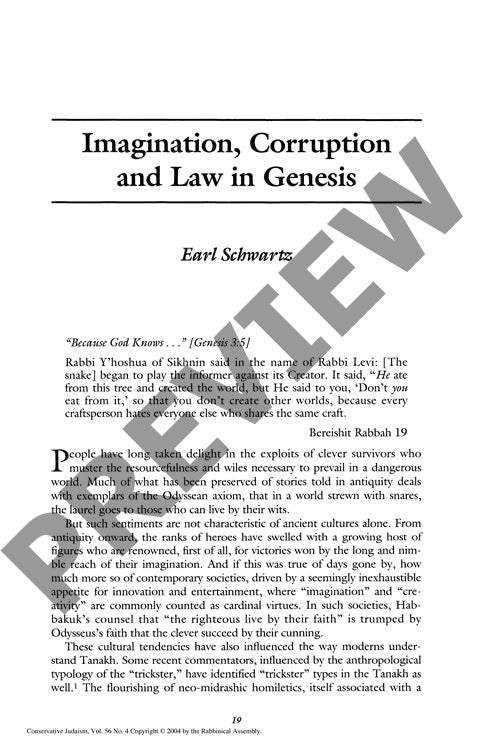Imagination Corruption and Law in Genesi
Couldn't load pickup availability
In the opening chapters of Genesis, human imagination emerges not as an unalloyed good, but as a profound source of moral corruption and spiritual decay. Through philological analysis of Hebrew terms, particularly ערום (naked/cunning) and יצר (imagery/imagination), Genesis 1-11 presents a systematic critique of imagination's role in human fallenness. Close textual examination of wordplay and thematic continuity across the Eden, Cain and Abel, flood, and Babel narratives reveals how human imagination repeatedly leads to the creation of "other worlds" that distract from divine reality, resulting in violence and spiritual corruption. God's responses—expulsion from Eden, the Noahide covenant, and the dispersion at Babel—represent divine accommodations designed to limit imagination's destructive potential while preserving human nature as created. The analysis demonstrates that biblical law functions as an "orthopedic brace" to redirect imaginative impulses toward divine intentions, establishing a theological framework that distinguishes between imagination used for divine purposes versus imagination that leads to self-deception and moral failure. This interpretation offers a corrective to modern readings that celebrate imagination uncritically, revealing instead the Bible's nuanced understanding of imagination as both essentially human and potentially dangerous.

More Information
-
Physical Description
-
Publication Information
Published 2004
ISBN
-
Publication Credits
Earl Schwartz

